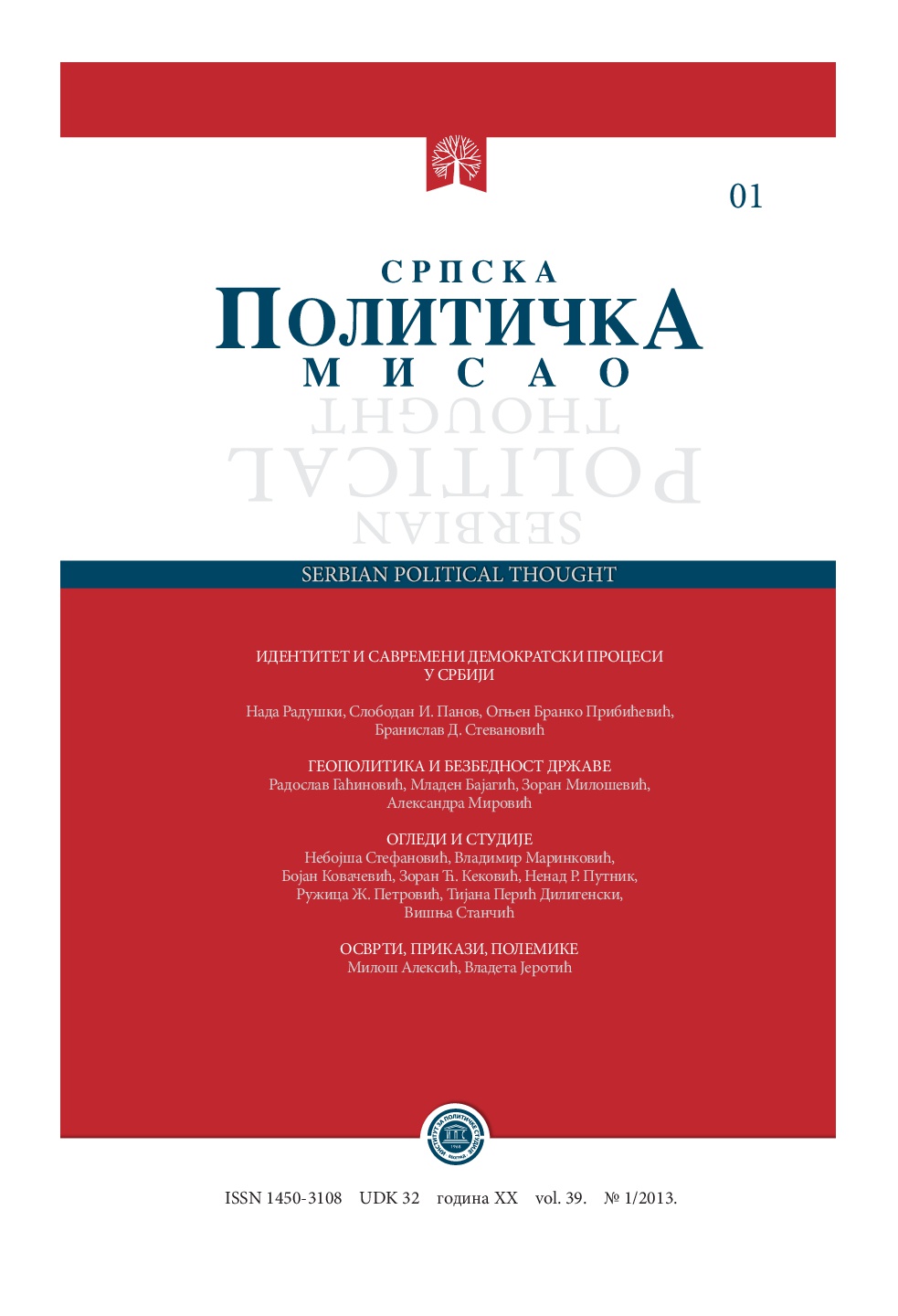Неолиберални институционализам у међународним односима и студијама безбедности
Neo-Liberal Institutionalism in International Relations and Security Studies
Author(s): Mladen BajagićSubject(s): Recent History (1900 till today), Government/Political systems, International relations/trade, Security and defense, Geopolitics
Published by: Институт за политичке студије
Keywords: states; international institutions; neo- liberalism; neo- realism; neo- liberal institutionalism; national security; cooperation in security;
Summary/Abstract: As an annex to the widest liberal political understanding, neo- liberalism and neo- liberal institutionalism represent some of the key theoretical approaches within the science of international relations and security studies about the understanding of international (security) reality in the second half of the XX century. Having in the spotlight the anarchical structure of international system, both neo- liberals and neo- liberal institutionalists, accepting some basic postulates of neo- realism, emphasize the importance of international institutions and regimes in establishing and maintaining cooperation between the states as rational actors, who through the cooperation aim, above all, in achieving absolute gains, compared to (neo) realistic attitudes of the prevailing significance of the relative gains for the states and their narrow- selfish interests. Sharp debate between neo- liberals and neo- realists (the neo- neo debate) marked the theory of international relations and security studies in recent decades, but its final outcome is not at sight. Contemporary international political and security reality, based on concrete examples from international practice questions almost all the attitudes of neo- liberal institutionalists, above all, the motives, conditions, norms, rules and procedures of establishing and maintaining the cooperation and an honest behaviour of the states in those arrangements. The experience tells us that the forms of cooperation which have been established so far were both useful and harmful for the states, because, among other things, they are specially characterized by the efforts of powerful states to reduce national security capacities of the weaker states and often achieve hegemonic goals on their harm.
Journal: Српска политичка мисао
- Issue Year: 2013
- Issue No: 1
- Page Range: 127-158
- Page Count: 32
- Language: Serbian

